
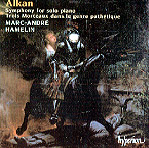
Marc-André Hamelin’s freakish proficiency at the piano both suits and serves Alkan’s music to extraordinary ends. He accomplishes technical miracles in the Symphony for Solo

What an imaginative program Marc-André Hamelin has assembled: jazz-inspired works that are virtuosic like nobody’s business and totally fun to listen to. Certainly the pianist
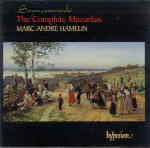
Karol Szymanowski’s Mazurkas take their cue from Chopin’s fusion of folkloric elements and the utmost in harmonic sophistication, albeit from an early 20th century vantagepoint.

Nikolai Medtner’s Sonata-Reminiscenza (Op. 38 No. 1) and Sonata Tragica (Op. 39 No. 5) are components of the composer’s Op. 38 and Op. 39 “Forgotten

Dukas’ Piano Sonata is the French “Hammerklavier”, a massive work nearly 45 minutes long written in an uncompromising style that never courts popularity. That said,
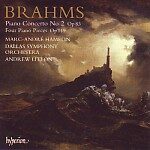
Marc-André Hamelin’s forays into the standard repertoire have met with mixed success, partly because the competition is so strong, and partly because there seems to

Few pianists living or dead can touch Marc-André Hamelin in the gnarly, difficult repertoire by composers such as Godowsky, Medtner, Catoire, Alkan, Kapustin, and in
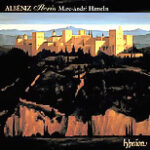
For pianism alone, Marc-André Hamelin’s effortless proficiency throughout Albéniz’s demanding Iberia suite sets new standards in this work. The composer’s elaborate textures never fail to

Hyperion’s first offering of music by Russian composer Nicolai Kapustin (b. 1937) featured exceptional performances by Steven Osborne, and this newcomer is every bit as
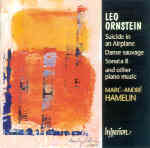
Leo Ornstein, who died in 2002 at the age of 109 or 110 (even he didn’t know for sure), composed a substantial and fascinating body
![]()
